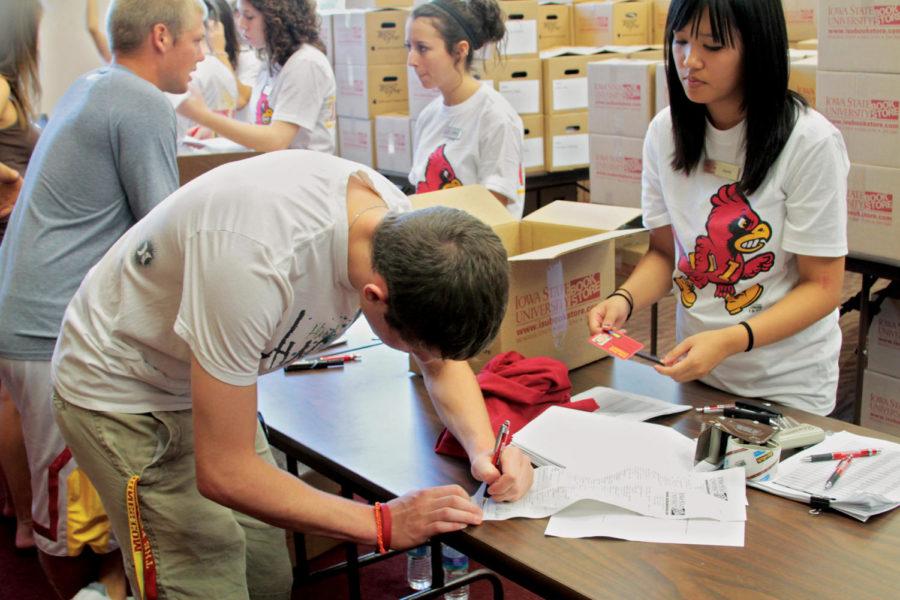University Book Store in Ames offers textbook rentals
Photo: Ryan Damman/Iowa State Daily
Alan Schluetter, freshman in mechanical engineering, signs paperwork to pick up his books on Thursday, Aug 19 in the Campanile Room of the Memorial Union.
August 31, 2010
University Book Store has decided to follow suit after seeing a huge draw from buying and renting textbooks online.
“Students started asking us if we rented textbooks, so we saw that the demand was there for it,” said Carl Arbuckle, textbook supervisor at UBS.
UBS was 1 of 30 recipients of a $300,000 grant from the U.S. Department of Education to start a rental program in October 2009 but was not able to start the program until this fall.
“We had to wait for our computer system to be upgraded to handle the rental function,” Arbuckle said.
Rental fees can vary from 20 percent to 50 percent of the new price. Arbuckle said quite a few titles ran out fairly early on.
“We look at what our cost is to bring books in, whether they’re new or used and try to figure out how many semesters we’re able to rent the book for, and base our price on that,” Arbuckle said.
UBS offered 140 titles up for rent this semester.
“We tend to focus on bigger courses or those that need more expensive books to save students the most money,” Arbuckle said.
It’s advisable that professors commit to using the same textbook for at least four to six semesters in order for rental to be economically feasible, according to a news release.
UBS advises students to try not to rent a textbook if it will be needed for more than one semester. Arbuckle suggested students could be better off purchasing the textbook at that point.
Textbooks that have tear-out pages or single-user access codes cannot be rented unless the code can be sold separately.
UBS will be upgrading their software provider so they can hopefully rent more titles and have that ready in time for the spring semester.
“Our used book ratio in the fall 2009 semester was at 41 percent,” said Rita Phillips, director of UBS, in a news release.
This means 41 percent of textbook sales were used books, which cost students 25 percent less than buying new books, according to a news release.







